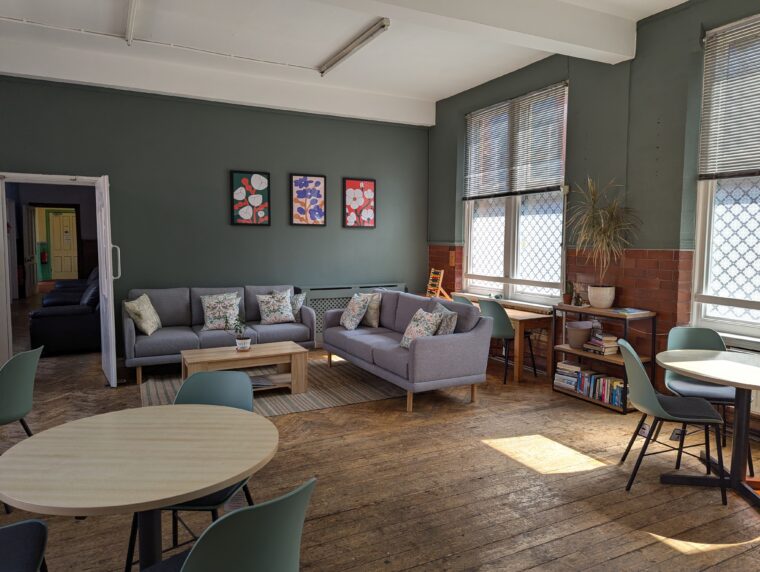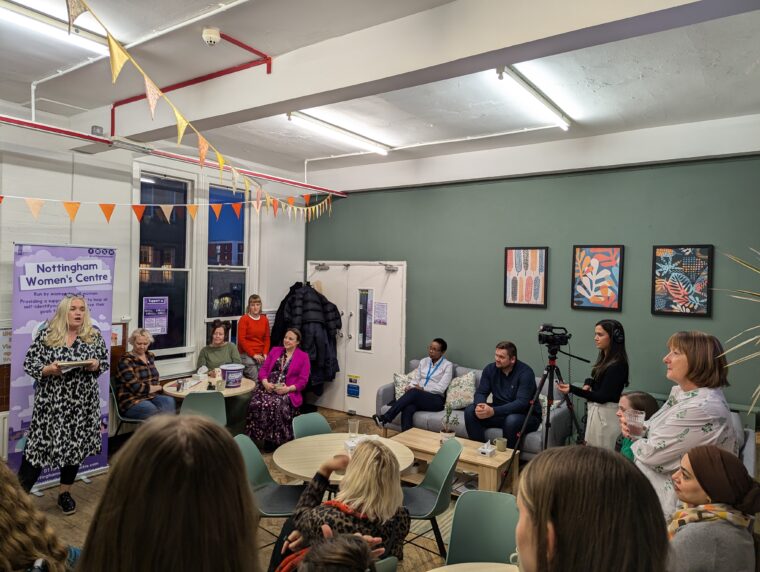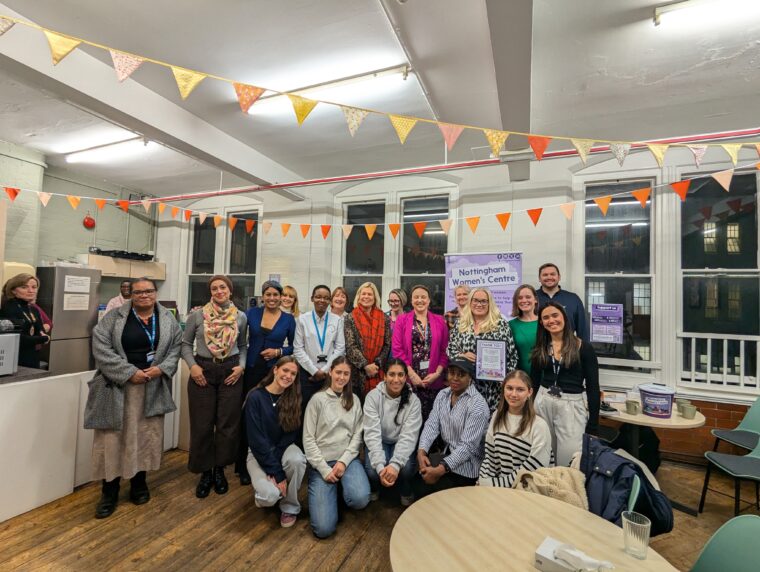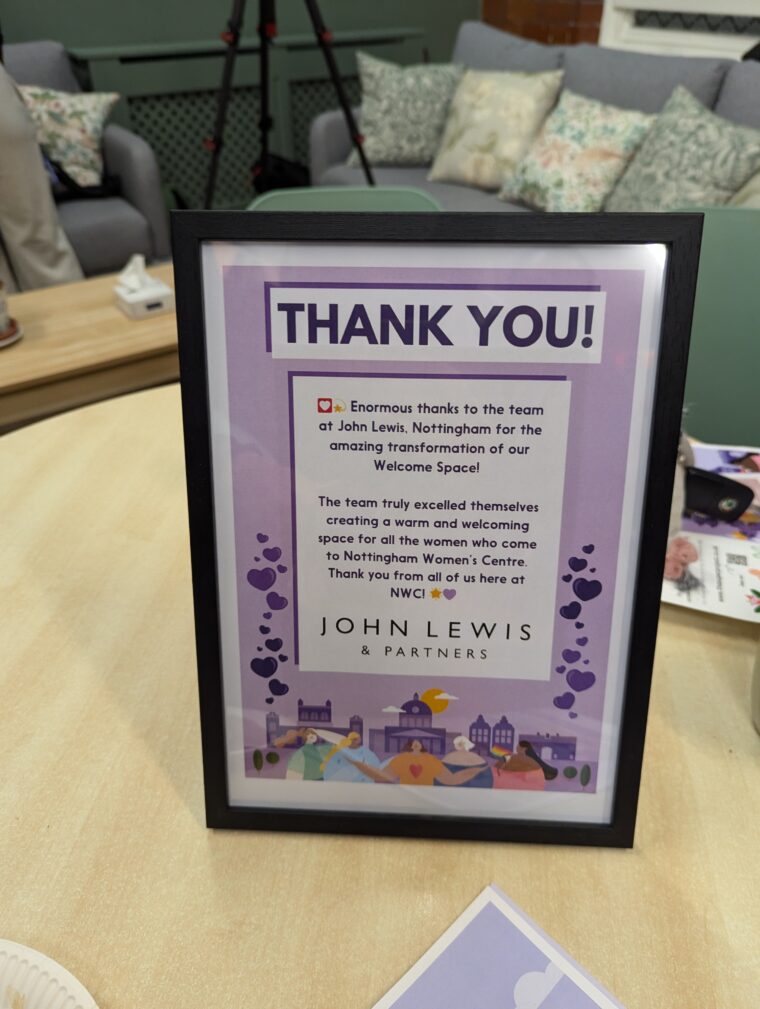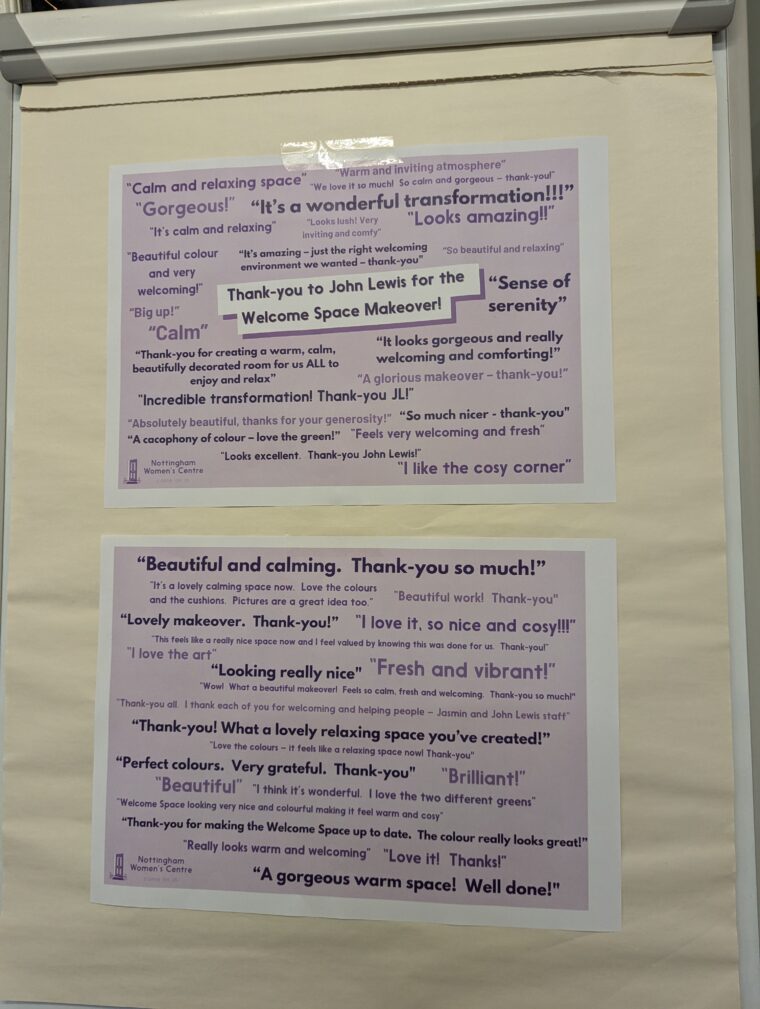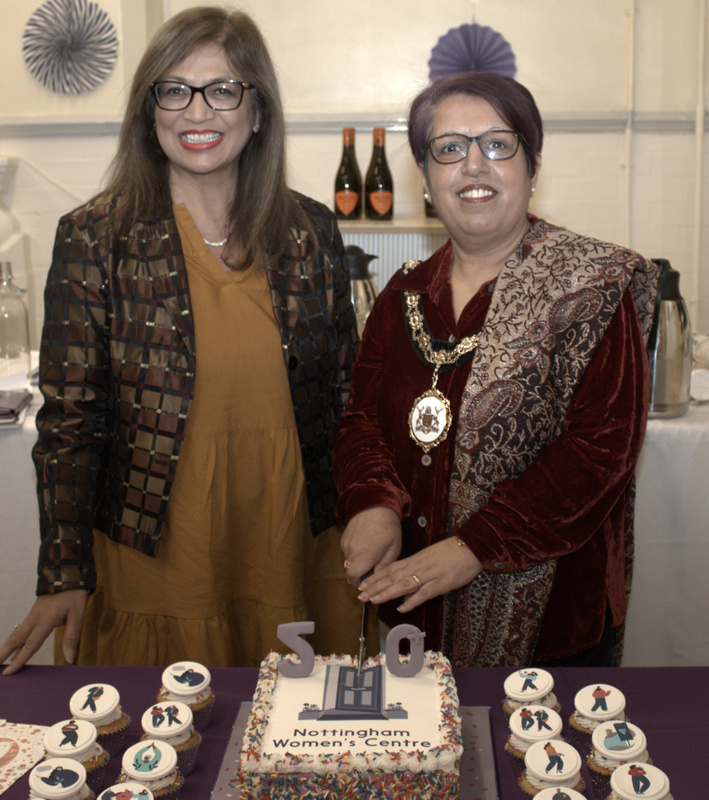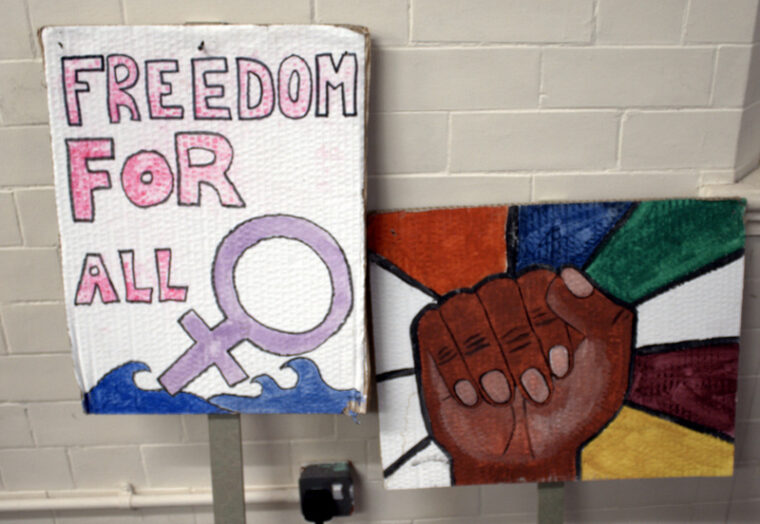We’re delighted to share our Annual Review 2024 – 2025 with you — celebrating the achievements of the past year and looking ahead to an exciting future!
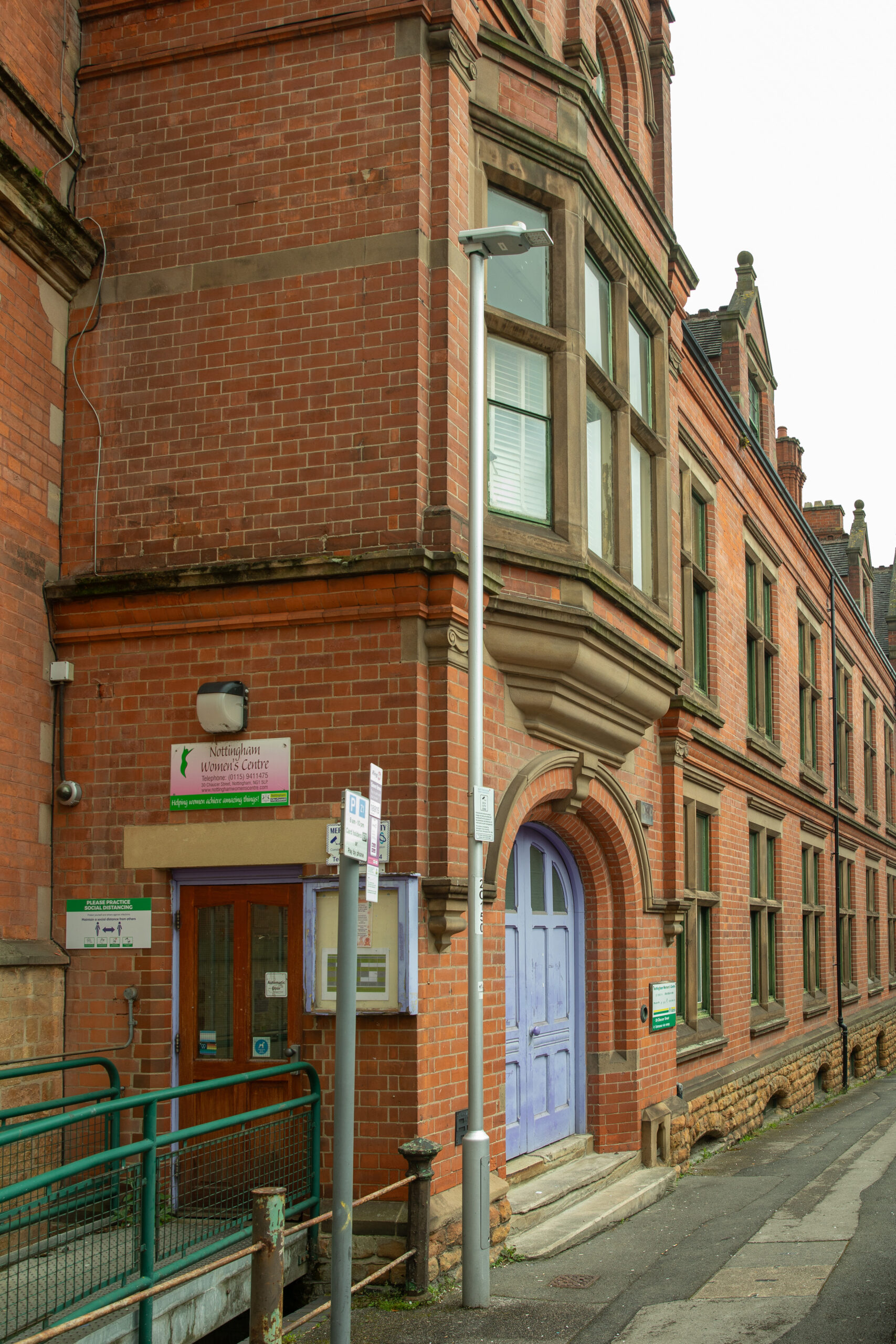
Our year began and ended bringing women together in the spirit of activism and community. We started off with a busy election period that had three major elections happening in the city and we worked hard to ensure women’s voices were heard.
We hosted a women’s hustings and created powerful manifestos reflecting the priorities of women in Nottingham. Through our Women’s Organisations Network, we were proud to unite groups across the city to speak with a collective voice.
We closed the year with our biggest International Women’s Day celebration yet—welcoming over 230 women to a joint event with our sister organisations. The theme: self-care, activism, and the power of community. Staff, volunteers, and sector partners worked together to create a truly memorable day that drew together our community.
We’ve had nearly 100 women volunteer at the Centre, and they really are the heart of everything we do. 100% of volunteers have described their experiences with NWC as positive, rewarding or fulfilling, which makes us so happy!
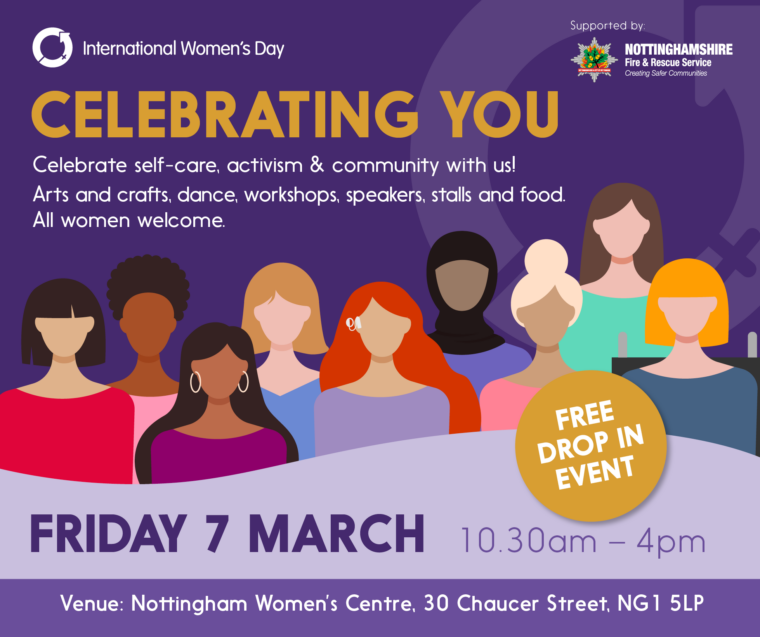
These values ran throughout the year. We codesigned new projects with women, such as our programme of activities for Ukrainian women, our work supporting women seeking asylum, Women’s Health Matters, and our new therapeutic group for Black and Dual Heritage women. At the same time, we strengthened core services like our women’s justice services, New Changes, and RENEW – our affordable counselling service.
Nearly 11,000 visits to the Centre this year reflect the trust women place in us. Over 600 women have accessed our casework support, and nearly 300 have accessed our therapy and counselling services. We’re so proud that 89% of all women receiving domestic abuse therapy support at the Centre reported improved mental health and well-being.

Our new strategy places campaigning at the heart of our mission. We proudly co-hosted a powerful Reclaim the Night march with over 300 women and continue to push for change on the issues that matter.
We hope you can join us again at this year’s march!
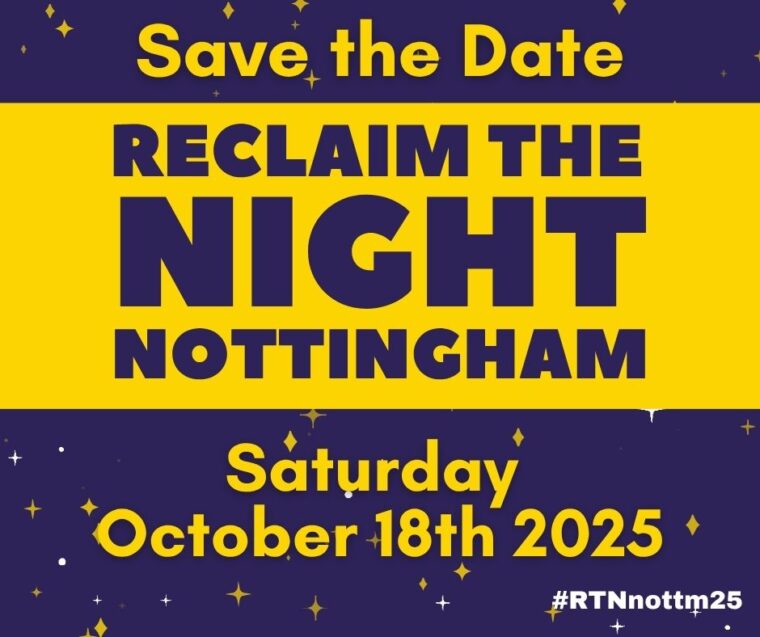
Looking ahead, we’re focused on securing long-term investment and turning our hub at 30 Chaucer Street into a permanent, welcoming home for Nottingham Women’s Centre. We’re excited for what’s next—and grateful to have you with us on the journey!

